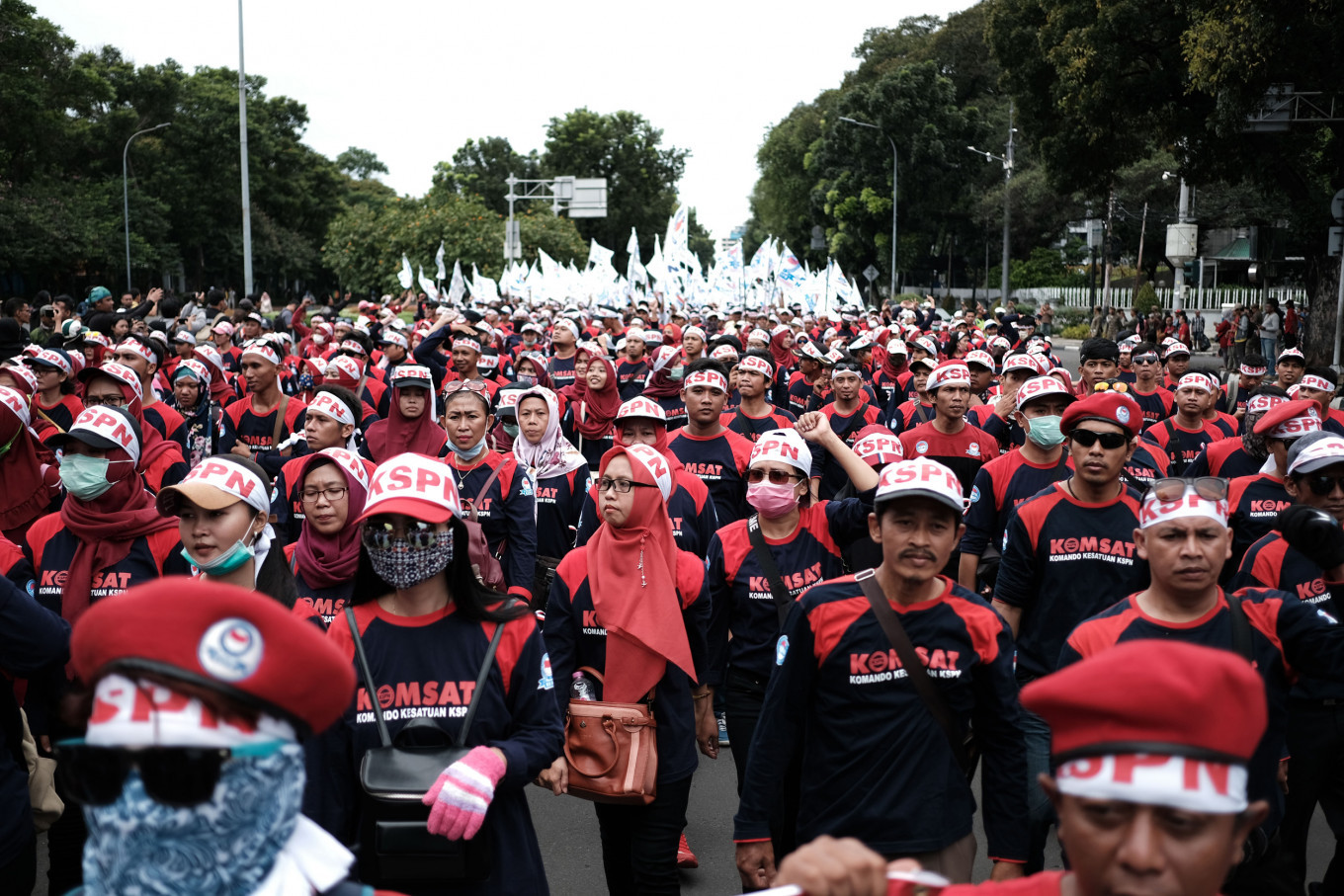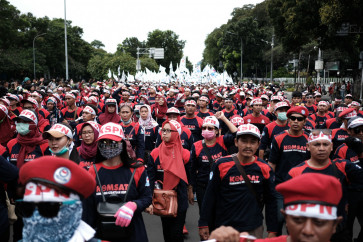Popular Reads
Top Results
Can't find what you're looking for?
View all search resultsPopular Reads
Top Results
Can't find what you're looking for?
View all search resultsManpower Ministry mulls options to protect laid-off workers
With the jobs market becoming increasingly flexible, the Manpower Ministry is exploring options to protect workers who are laid off or whose contracts are not renewed. Unemployment insurance is one of those options, according to Manpower Minister Hanif Dhakiri, another is training and certification for the jobless.
Change text size
Gift Premium Articles
to Anyone
M
any workers in Indonesia are employed on limited contracts, especially as the so-called gig economy takes hold, but who and what is there to protect them if their contract ends abruptly?
Take 28-year-old Tristan, who has worked for a local start-up for only seven months. He has taken up his dream job at a social enterprise that focuses on environmental issues, but the downside is insecurity over the sustainability of his job.
“My fear is that if can’t deliver my best work for the client, I will get cut. I have a contract, but my concern is that I can’t sustain or retain it,” said Tristan, one of some 74 million people working in the informal sector, who accounted for 57 percent of Indonesia’s labor force in February, according to Statistics Indonesia’s (BPS) latest employment data.
With the jobs market becoming increasingly flexible, the Manpower Ministry is exploring options to protect workers who are laid off or whose contracts are not renewed. Unemployment insurance is one of those options, according to Manpower Minister Hanif Dhakiri, another is training and certification for the jobless.
“Finding a permanent job may become more challenging in the future, with many contractual jobs up for grabs. So how should the country protect these workers? There must be a flexible security system to protect the more flexible labor market,” Hanif told The Jakarta Post in a recent interview.
The two programs being studied are unemployment benefits or insurance for laid-off workers on the one hand and training and certification on the other, which together could provide a social safety net and facilities for workers to upgrade their skills while unemployed.
They could complement the social security programs managed by the Workers Social Security Agency (BPJS Ketenagakerjaan), which is currently in charge of four social security programs: work safety insurance, life insurance, pension funds and retirement benefits.


















